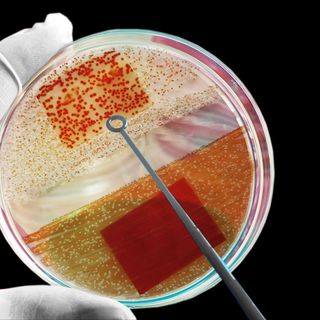Adult female offspring of pregnant mice injected with excess male sex trait hormones may experience an increased risk of developing cardiac dysfunction, according to new research published by Cardiovascular Researchjournal. The research might help draw a link between heart dysfunction in the children of women who have PCOS and how to prevent it.
Polycystic ovary syndrome (PCOS) is a hormonal disorder common among women of reproductive age, according to the Mayo Clinic. Symptoms of PCOS include irregular periods, ovaries developing cysts and higher than normal levels of male hormones (androgens). PCOS has also been linked to type 2 diabetes, depression, high blood pressure, and cancer. Though it is very common in women of reproductive age, the exact causes of the syndrome are unknown.
Related on The Swaddle:
For Many, a PCOS Diagnosis Only Brings More Confusion
For this study, researchers assessed the effects of prenatal exposure to dihydrotestosterone (DHT) hormone — a male sex trait hormone — and maternal obesity, in mice. The cardiovascular function of the female offspring of these mice was measured and their cardiac tissue was harvested for molecular analysis.
Researchers found that exposure to excess male sex hormones like DHT in the womb leads to cardiac hypertrophyin the female offspring. Cardiac hypertrophy is when the heart muscle increases in size due to growth in the muscle’s component cells, causing the heart muscle to malfunction. Researchers also found that maternal obesity did not have any effect on the cardiac profile of the female offspring. However, the researchers did succeed in partially alleviating the cardiac hypertrophy via the anti-androgen medication, flutamide. This anti-androgen drug is often used to block the malignant effects of testosterone in men with prostate cancer.
For human patients, clinical trials have confirmed that flutamide can improve hirsutism, drop androgen levels and even restore ovulatory cycles in PCOS patients. Therefore, if there are potential complications caused by excess DHT hormones in human PCOS patients — whether pregnant or not — they might be able to be both prevented and stabilized in the near future.




